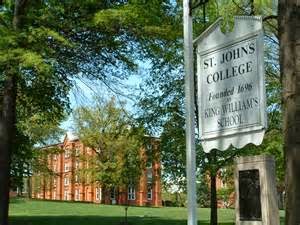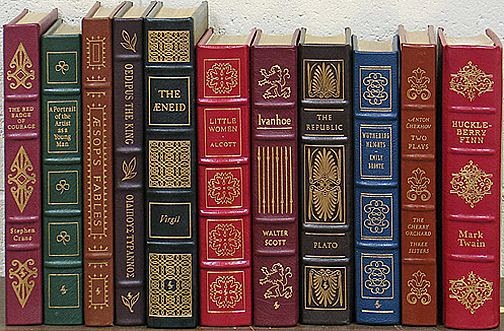They know and do not know, what it is to act or suffer.
They know and do not know, that action is suffering
And suffering is action.
~T.S. Eliot, Murder in the Cathedral, Pt 1
The Wyoming summer wind ripped across the church steps, flapping books and tearing the words out of our literature professor's mouth, making both lecture and discussion impossible. But it was useless to hold class inside--although it was only ten in the morning, the warmth and stuffiness of the classrooms had made all our heads buzz with sleep. At last in desperation we tramped over to a protected nook of the building. Here we circled up on the concrete in the lee of the wind, and proceeded to dive into passages such as these, from T.S. Eliot's Murder in the Cathedral:
Neither does the agent suffer
Nor the patient act. But both are fixed
In an eternal action, an eternal patience
To which all must consent that it may be willed
And which all must suffer that they may will it,
That the pattern may subsist, for the pattern is the action
And the suffering, that the wheel may turn and still
Be forever still.
I had read the play once, before I knew it was on the reading list for Wyoming Catholic College's summer program. Back then the height of language and plot, dramatizing the final weeks of the life of St. Thomas Becket, had affected me deeply. But even on multiple readings, I couldn't get my head around obscure passages like the one above. I grasped the outline of the play but seemed to be missing its essence.
To do all what we did in class at WCC--to dive into historical context, draw out major themes, make comparisons between Becket and Christ's Passion, and dwell on the meaning of martyrdom--is impossible in one blog post. Suffice to say I came away with a much fuller understanding of Eliot's purpose in writing the play. The conflict centers, not so much on the fatal disagreement between Thomas Becket and his king, but on Thomas's own inner struggle. As he proclaim in the first act: "The last temptation is the greatest treason: To do the right deed for the wrong reason."
For Thomas knows he is going to be killed, to be "martyred". He has defied King Henry's claims of power over the Church. But is he really dying for God's kingdom, or for his own spiritual pride? This is the terrible question: Can a man never escape pride, even when he is trying to serve God? But Thomas sees the way out. As he explains in the middle section of the play, in his Christmas day sermon:
A Christian martyr is never an accident, for Saints are not made by accident. Still less is a Christian martyrdom the effect of a man's will to become a Saint, as a man by willing and contriving may become a ruler of men. A martyrdom is always the design of God, for His love of men, to warn them and to lead them, to bring them back to His ways. It is never the design of man; for the true martyr is he who has become the instrument of God, who has lost his will in the will of God, and who no longer desires anything for himself, not even the glory of being a martyr.
If Thomas submits himself totally to God's plan, he cannot be acting out of pride. That is his salvation and ours. Before Becket's martyrdom, the tone of the play is one of terror and foreboding, mounting to ultimate despair--the despair of the soul trapped in pride. But afterwards, the world of the play, so to speak, is cleansed and re-ordered. For by accepting God's will, Becket became a channel of grace to Canterbury, drawing down God's eternal plan into time. This is the eternal action and pattern so obscurely spoken of--perhaps because it is indeed a mystery. God's love, being this mystery, but also being real, bewilders and even frightens us. As the Chorus pleads near the very end of the play:
Forgive us, O Lord, we acknowledge ourselves as type of the common man,
Of the men and women who shut the door and sit by the fire;
Who fear the blessing of God, the loneliness of the night of God, the surrender required, the deprivation inflicted;
Who fear the injustice of men less than the justice of God;
Who fear the hand at the window, the fire in the thatch, the fist in the tavern, the push into the canal,
Less than we fear the love of God.
God's love is fearsome. But He requires us to embrace it, as Becket did, because He is our purpose and fulfillment. That is the wonderful mystery of the martyrs.
St. Thomas Becket, pray for us!



